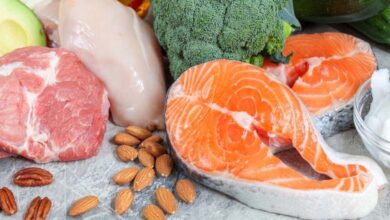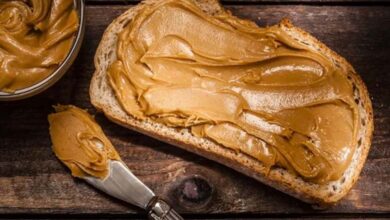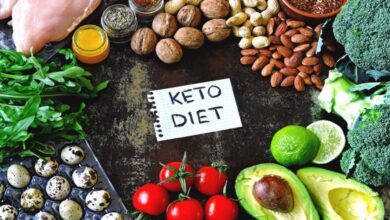5 Foods to Avoid During Pregnancy to Prevent Heartburn

During pregnancy, a few slices of fries or a handful of chocolate can cause intense heartburn, commonly known as “acid reflux.”
-
5 Dietary Alternatives to Detoxify During Pregnancy
-
Beyond Meat and Eggs: 5 Plant-Based Foods That Boost Muscle Growth
Heartburn is common during pregnancy and affects most women. According to research, the occurrence of heartburn increases from 22% in the first trimester to 39% in the second trimester. Between the second and third trimesters, this percentage rises from 60% to 72%, making heartburn during pregnancy seem inevitable.
Heartburn occurs as a result of acid reflux, which happens when stomach acid finds its way into the esophagus, causing a burning sensation just behind the breastbone. The area where the esophagus meets the stomach contains a tight sphincter muscle that acts like a strong elastic band, keeping stomach acid in place. However, during pregnancy, this sphincter muscle becomes less effective due to hormones and relaxes enough to allow some stomach acid to leak out.
-
How Cutting These Foods Can Lose Their Nutritional Value
-
“Healthy Foods” contribute to rapid weight gain
According to doctors, the foods that cause heartburn during pregnancy include:
- Acidic foods and drinks
Acidic foods can irritate the esophagus and add more acid to the already severe acidity, worsening heartburn symptoms. Acidic foods to avoid include:
- Citrus fruits like lemons, oranges, grapefruits, and their juices
- Apples, grapes, blueberries, pineapples
- Tomatoes, raw onions, red peppers, and pickles
- Vinegar of all types
-
Colored Foods… Do They Pose a Risk to Your Children’s Lives?
-
Inflammatory foods to banish from your plate
- Coffee, tea, and soda
These beloved beverages are known to increase heartburn, and this isn’t limited to the caffeinated versions. Their acidity levels play a significant role in this.
- Fatty and fried foods
Fatty foods, including full-fat dairy, take longer to digest, which means it takes more time for the stomach to empty. The longer food stays in the stomach, the more likely it is to flow back into the esophagus, causing discomfort and pain.
- Chocolate
Research has long shown that chocolate is a major trigger of acid reflux because it contains acidic properties like caffeine and cocoa, which can reduce the pressure around the esophageal sphincter, causing it to relax enough to allow stomach acid to flow back into the esophagus.
-
The “terrifying” impact of fast Colored Foods… Do They Pose a Risk to Your Children’s Lives? on teenagers’ brains
-
Health – 10 Foods you’re not eating enough
- Spicy foods
Spicy foods can trigger an episode of acid reflux. The secret behind the flavor of spicy foods like chili peppers is capsaicin, which irritates mucous membranes, including the esophagus, potentially leading to acid reflux. Capsaicin also slows down digestion, further exacerbating acid reflux symptoms.












